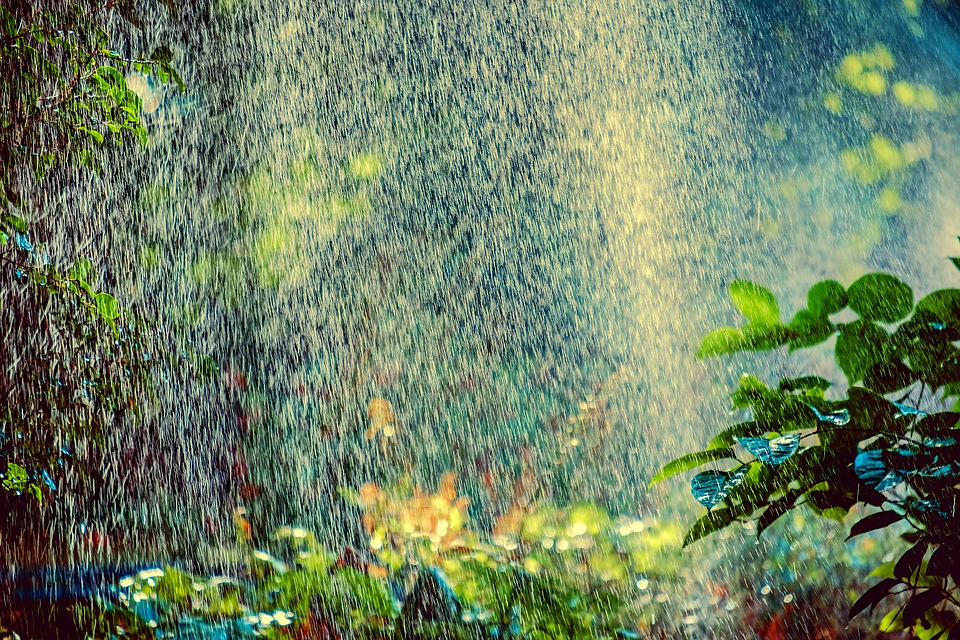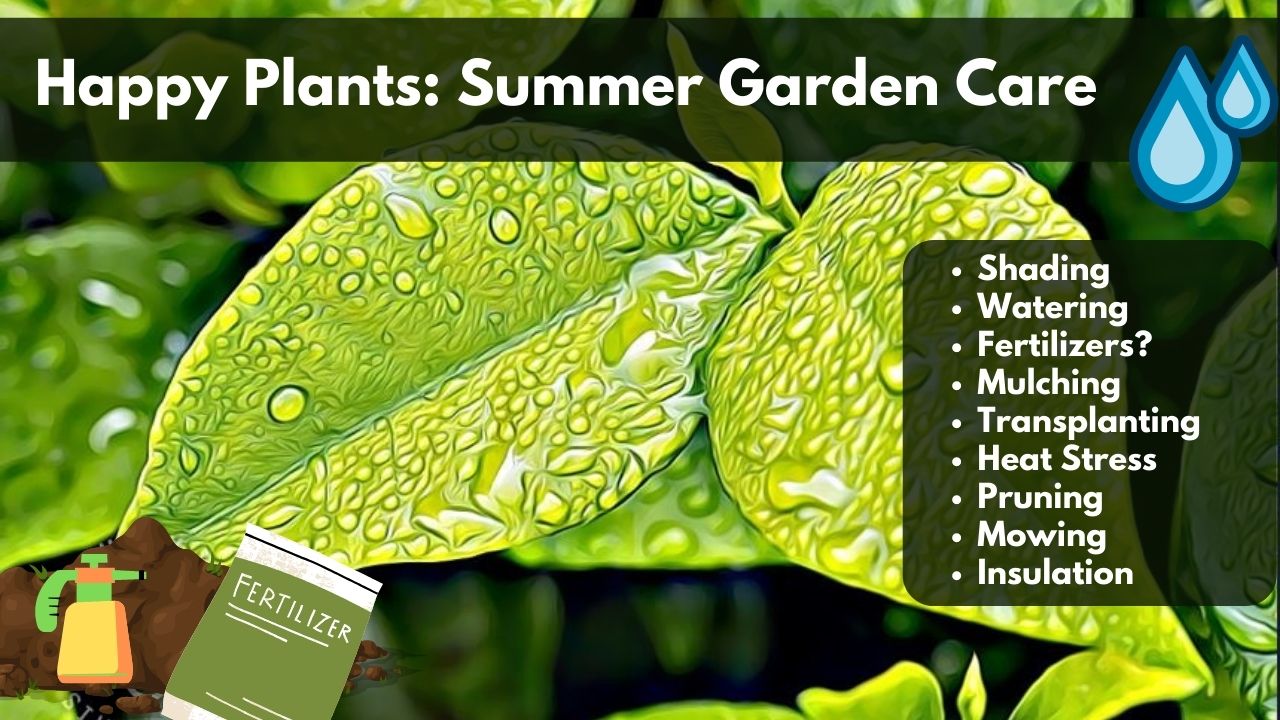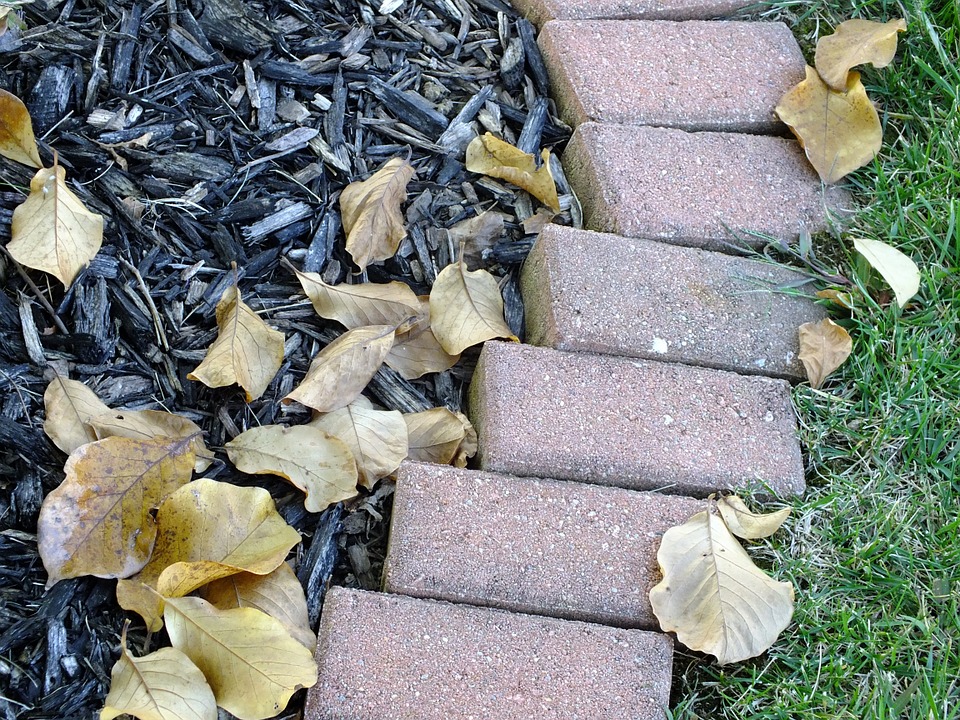Summers are exciting and bright despite its scorching heat. This single season could reward us with many succulent summer fruits as well as veggies.
However, the burning harshness, especially from mid-April to early June, is probably the more dangerous period of summer. And we have to protect our lovely garden from the grasp of fetal sunray throughout the whole session!
This time, plants suffer from dehydration, excessive dryness, burning hotness, and fewer blooms than regular times.
Hence, we have to apply some methods to keep our favorite garden plants fresh, hydrated. Also, help them to bloom normally without any interruption for the adequate growth of your crops. Let’s check some effective tips to protect your garden during the harsh summer expertly-
Summer Season Garden Care Quick Overview
How to protect my plants in extreme heat:
- Transplant shade lovers near taller plants
- Shade in time saves your plants
- Deepwater consistently
- Avoid overwatering and don’t water during under the sun hours
- Avoid fertilizers and pruning during peak summer to reduce heat stress
- Paint your pots in light colors to reflect light and heat to protect the roots

Watering needs for potted plants in summer: Deep watering is enough. In the case of potted plants check soil moisture before watering.
Do leave water in saucers of potted plants as it may cause root rot and encourage mosquitoes. Use sand-filled saucers for potted plants. Water in the moist sand will ensure your plant remains cool and roots have a breathing space.
Why mulching is important in summer: Though mulching may cause mildew and fungi attacks in early spring, late spring mulching is essential for your plants in summer.
Mulching prevents weeds, provides protection to the roots insulating the surface from the blistering hot sun. Also, this traps moisture to keep the plant cool by reducing the evaporation rate.
Don’t overdo mulching as it may suffocate or bake your plant. And locking excess moisture on a sunny day may give a hand up for diseases. Also, excessive mulching into a pile becomes a hiding place for garden pests.
If your mulch is turning old and it’s about to decompose mix it with compost before using it as a soil amendment.

How to Protect & Take Care of Your Garden in Harsh Summer:
Do mulching for insulation
Mulching would be a nice method to keep your plants hydrated all through the day. Effective mulching spread around your plants will keep the root of your plants cool and prevent your soil from drying out faster. Apart from cooling mulching also encourages microorganisms and attracts earthworms as the spot tends to be cooler than nearby.

Add some colors to your garden with heat-tolerant plants
Some flowering plants love to bathe in sun and produce bright and colorful flowers and invite the pollinators. here are some sun lovers to make your garden colorful: Lillies, bougainvillea, marigold, zinnia, dahlia, begonia, and peonies.
Invest in some shade cloth
Before the summer starts hitting your garden with its burning heat, provide a 50/50 shade to your garden plants.
Even simply rig up some clothes or thick canvas or patio umbrella partially or all over your plants. Depending on the needs of your garden plants; As some plants could thrive perfectly in full shade, while few plants need at least 2-3 hours of full sunlight for perfect growth.
Plan for less effort and better harvest
Remember that seasonal plants could stand best with their particular climate, so, choose summer plants to cultivate in your garden during this period and you will require less effort to grow your garden plants during the unbearable heat of summer.
Schedule Watering
Pick the perfect time for watering your plants during summer, as the watering period hugely matters to the health of your garden plants. Early morning and evening are the best timing for this purpose. Attempt to water your yard plants before 9 am and after 5 pm for the best outcome. Water by early cool hours of the day as excess water evaporates by daytime that prevents fungi and mildew attacks.
Observe plants for their watering needs
Water deeply for potted plants to encourage a better root system for healthy and happy plants.
Containers pants need frequent watering. Increase watering frequency only if needed.
During the scorching summer, the heat absorbs water from the soil and broadleaf plants quickly. So, pick your watering can twice as it changes with the per plant needs and to keep the root system of your plants well hydrated.
Don’t soak often, check for the soil moisture under the surface, if it’s dry, pick your can/hose.
Install Irrigation kits for easy maintenance
Installing irrigation hoses or soakers in your garden area would be a smart attempt. Keep watering your garden plants with this slow yet steady technique. Make sure you have installed them at the right spots/intervals of your yard, from where it could cover most of the garden plants easily.
Don’t mow your lawns in summer
Don’t mow your garden during summer. As long grass could provide natural shade and reduces evaporation. Apart from that mowing adds additional stress to your lawn in summer results in slow recovery.
Mowing your grass high before summer makes the grassroots deeper and prevents weed intervention easily without weed killers. As deeper roots fight competition for water and minerals and tall grass prevents sunlight to weeds. You may feel like mowing low means less maintenance but, tall grass fights weeds and keeps your lawn lush green.
Use harvested rainwater if possible
Provide more mineral benefits to your plants with less watering, try to water your garden area with rainwater. It will need less quantity to cater the adequate nutrient value to your garden plants than regular tap water. Simply, conserve some water during the downfall and spread them over your shrubs regularly.
Move shade lovers near trees
Design and grow your plants wisely in your yard, transplant smaller plants near larger trees, so then, they could get natural shade & thrive easily even in the scorching climate of the season.
Plants Summer Care Update
Fertilizing garden plants in hot weather: No don’t use fertilizers in peak summer as it may bring the plant down in dry weather. Fertilizers make the plant’s stem and leaves outgrow the roots, this adds stress to the roots.
Most plants don’t need a fertilizer boost in summer unless they are potted rose plants or season plants. Overdoing fertilizers spoil the plant and also the excess fertilizer is polluting and gets wasted.
Pruning plants and trees in Summer: Mild pruning is okay to remove damaged leaves and small twigs. Aggressive pruning or pruning structural changes in summer is surely going to stress your pant. Be it for trees or plants choose a late winter or early spring pruning. As the stress levels are lower during these seasons it will aid in much fast recovery and regrowth.
How to transplant or repot a plant in hot weather: It’s better your transplant or repot your plants in spring, as your plants and root system tend to grow actively during this season. Again to make it clear, transplanting or repotting your plant at a high temperature is not recommended.
If you have to transplant/repot it during peak summer;
- Prepare ahead and water the plants a day before it to be repotted or transplanted.
- This gives enough time for the plant to absorb enough water and buys you time while transplanting.
- Also, your plant should come out in a single piece with soil adhering to its roots.
- Dig the hole and water that spot in your garden or prepare the large pot. Rather than taking out all the plants at once, take one by one just before it’s about to be transplanted. As roots system becomes vulnerable once it’s exposed to sunlight and wind to make it go dry.
- Provide shade for few days if the plant is sensitive to hot weather and undergoes transplanting shock.